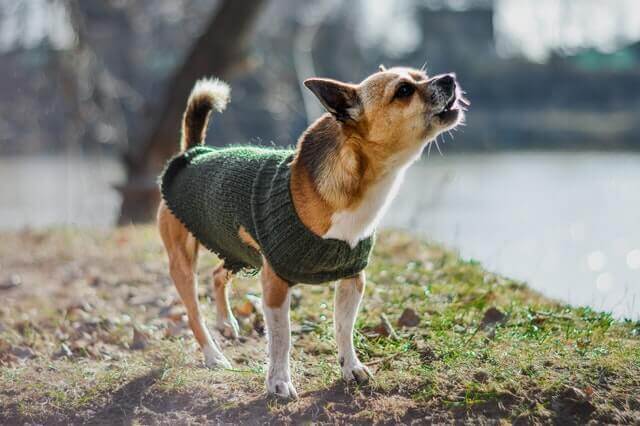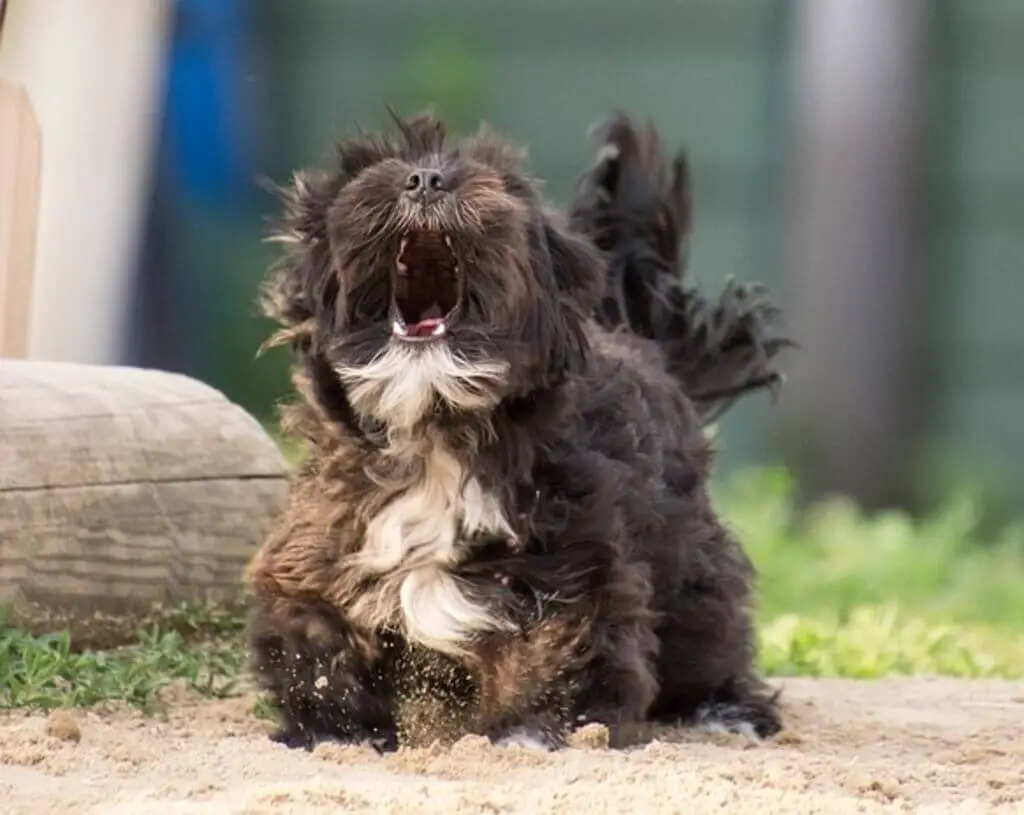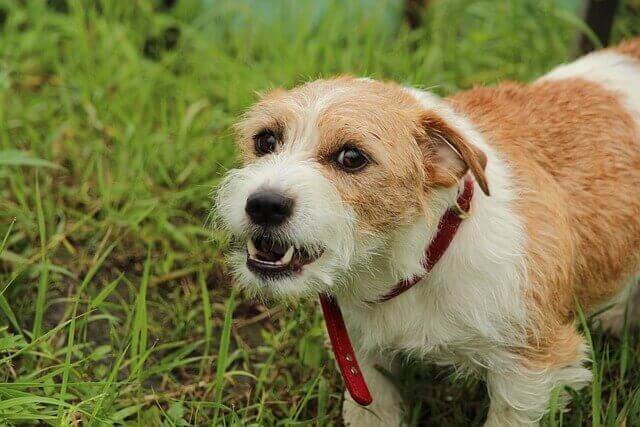Dogs are often considered to be man’s best friends, but not all dogs are the same. In fact, some dogs can be downright aggressive. Why are small dogs so aggressive? That’s a great question, and the answer is not always clear.
In this post, we’ll explore the many factors that contribute to dogs being aggressive, and we will also take a look at how small dogs can be aggressive.
- Why are small dogs so aggressive?
- What are the causes of small dog aggression?
- How to handle aggressive small dogs?
- What are some small dog breeds that are aggressive?
- Why are small dogs so mean?
- Why are small dogs so loud?
- Small dog aggressive to large dog
- How small dogs are the most aggressive?
- Why are small dogs more aggressive than big dogs?
- Why are big dogs so gentle?
- Why are big dogs less aggressive?
Why are small dogs so aggressive?
Small dogs are often seen as cute and cuddly, but many of them can be quite aggressive. There are a number of reasons why small dogs may be more aggressive than other breeds.
One reason is that they may feel the need to protect their owner or territory because they are smaller. Additionally, small dogs may be more territorial than larger breeds and may become agitated when someone comes into their space.
Small dogs may also be more prone to anxiety and fear, which can lead to aggression. Owners of small dogs should be aware of these potential triggers for aggression and take steps to prevent it from happening.
What are the causes of small dog aggression?
There are a variety of reasons why small dogs may become aggressive. One reason may be that the dog feels threatened or insecure in its environment. This may be due to a lack of socialization early in life, or because the dog is not comfortable with the people or animals around it.
Another possible cause of small dog aggression is dominance aggression. In this type of aggression, the dog is trying to establish itself as the dominant member of the pack. This can be caused by a lack of rules and structure in the home, or by teasing or tormenting the dog.
Lastly, fear aggression can be another cause of small dog aggression. Dogs who are fearful may become aggressive as a way to protect themselves from potential threats.
How to handle aggressive small dogs?
Dealing with an aggressive small dog can be difficult, but it is important to remember that you are in charge. Many small dogs are territorial and may become aggressive when someone or something they don’t recognize comes into their territory.
One of the best ways to handle an aggressive small dog is to teach them basic obedience commands such as sit, stay, come, and down. This will help you maintain control of the situation and ensure that the dog does not get too close to whatever it is that is making them agitated.
If possible, try to avoid direct eye contact with the dog and remain calm yourself. This will help to defuse the situation. If all else fails, you may need to use a deterrent such as a loud noise such as a whistle to scare the dog away.
What are some small dog breeds that are aggressive?
There are a few small dog breeds that are known for being aggressive. These breeds include the Dachshund, the Jack Russell Terrier, the Miniature Schnauzer, the Boston Terrier, and the Welsh Corgi.
While all dogs can be aggressive given the right circumstances, these small dog breeds are more likely to become defensive or territorial and attack someone or another animal.
If you are considering getting a small dog, it is important to be aware of these breeds’ tendencies and take steps to ensure that your home is safe for everyone in it. You may also want to consider training your dog from an early age so that it knows how to behave around people and other animals.
Why are small dogs so mean?
There are a variety of reasons why small dogs can be mean. One reason is that they may feel insecure or threatened because of their size. Small dogs may also become territorial and protective of their space and belongings.
Additionally, since small dogs typically have high-pitched barks, they can be more intimidating to people and other animals. In some cases, small dogs may simply be bred for aggression and have been taught to act aggressively from an early age.
Whatever the reason, it’s important to remember that small dogs can be just as dangerous as big dogs if they’re not properly trained and socialized.
Why are small dogs so loud?
Small dogs are notorious for being loud. They bark and yip at everything, from people passing by on the street to other animals in the park. While some people may find this behavior charming, others can find it to be incredibly irritating.
So why are small dogs so loud? The answer is likely a combination of factors. For one, small dogs are often terriers, which are bred for their hunting and herding skills. As a result, they have an innate desire to bark and alert their owners to potential danger or intruders.
Additionally, many small dog breeds were originally bred as companions for people, and so they tend to be more vocal than their larger counterparts. Finally, small dogs may be louder than larger dogs because they tend to be more excitable and have high energy levels.

Small dog aggressive to large dog
Small dogs are often aggressive to larger dogs, especially if the larger dog is dominant. This is often due to fear on the part of the small dog and a desire to protect itself. Small dogs may also be more aggressive if they are not used to being around other dogs.
Owners of small dogs should socialize them with other dogs early on and be aware of their body language, so they can intervene if necessary. If a small dog starts to act aggressively towards a larger dog, the owner should remove the smaller dog from the situation and give it some time to calm down.
How small dogs are the most aggressive?
Small dogs are often the most aggressive, due to their size and perceived vulnerability. They are also more likely to be treated roughly by children and may become territorial when confronted with other animals. Small dogs may also be more prone to developing aggression problems if not properly socialized as puppies.
Why are small dogs more aggressive than big dogs?
There are many reasons why small dogs are more aggressive than big dogs. One reason is that small dogs feel like they need to be more aggressive in order to protect themselves, since they are at a disadvantage size-wise.
In addition, small dogs may not have as much socialization as big dogs, which can lead to them being more territorial and protective of their space.
Lastly, some people may inadvertently encourage their small dog’s aggressive behavior by rewarding them for barking or growling at other people or animals.
Why are big dogs so gentle?
Big dogs are stereotypically thought to be gentle giants. Though there are some big dogs who are mean, most of them are actually very gentle.
There are many reasons why big dogs are gentle. One reason is that they often know their own strength and aren’t likely to use more force than necessary when interacting with people or other animals.
Additionally, big dogs usually have a calm demeanor and aren’t easily excitable, which means they’re less likely to become agitated and aggressive.
Finally, most big dog breeds were bred as companions and protectors, so they’re naturally inclined to be gentle around humans and other animals.
Why are big dogs less aggressive?
There are many reasons why big dogs are less aggressive. For one, they are often bred as pets and not for hunting or guarding like smaller dogs. Additionally, big dogs typically have a more docile temperament and are less likely to be territorial than their smaller counterparts.
They also tend to be less reactive and more tolerant of other animals and people, making them better suited for households with children or other pets.
Finally, research has shown that the hormones associated with aggression are usually lower in larger dogs, which may account for their generally more laid-back nature.
Related Post: Why Do Small Dogs Bark So Much? (The Truth Revealed!)



